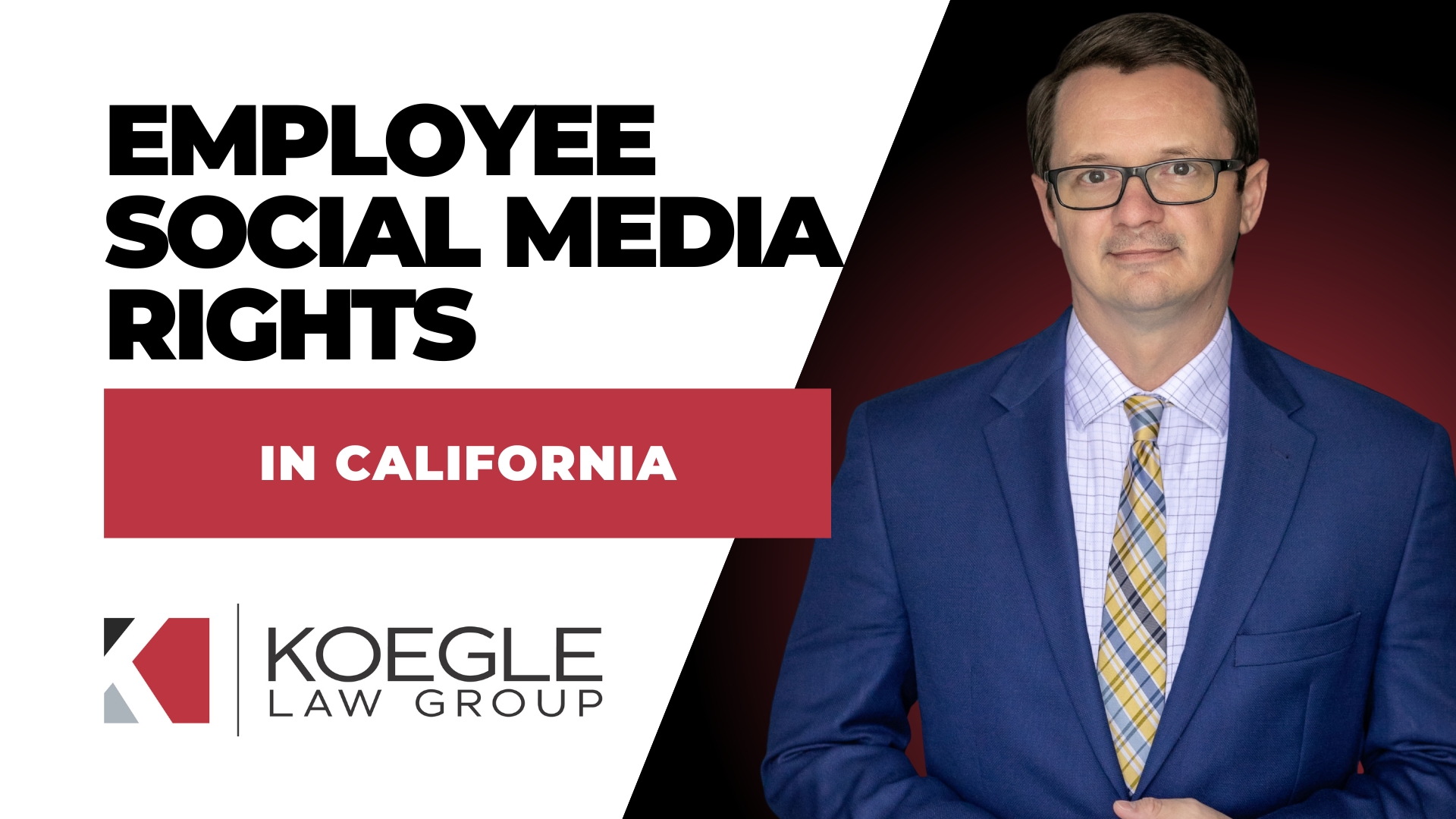Written by Lucas E. Rowe, Partner Koegle Law Group
Recent events related to the violent acts of political extremists in Utah and Minnesota have resulted in many companies wondering what, if anything, they can or should do when employees make inflammatory comments on their personal social media accounts that other employees find offensive. In short, California-based employees have substantial protections under state law for the expression of political opinions and employers should exercise extreme caution when taking action against employees for political expressions.
California Labor Code § 96
Labor Code § 96 empowers the Labor Commissioner to take assignment of claims for employees who suffer adverse action because of lawful conduct outside of work (i.e., off employer premises and during nonworking hours). This means that if an employer disciplines, demotes, or fires someone for something they posted on their personal account, outside of work hours, the employee may have a basis to challenge that discipline or termination.
While section 96 itself doesn’t create a brand-new right, it codifies California’s strong public policy of protecting lawful off-duty conduct. The law recognizes that what a person does in their private life – whether that’s joining a political rally, participating in lawful recreational activities, or expressing opinions online that others find offensive – should not be grounds for punishment at work.
In fact, Labor Code § 98.6(b)(1) allows an employee to bring a claim against the employer if the employee was terminated for engaging lawful off-duty conduct, entitling the employee to reinstatement and back wages.
California’s Constitutional Protections
California’s Constitution goes even further than federal law in safeguarding individual rights. Article I explicitly guarantees both freedom of speech and a broad right to privacy. Unlike the U.S. Constitution, which primarily restricts government action, California’s Constitution has been interpreted to apply in certain private settings, including the workplace.
These constitutional protections mean that employers must tread carefully when monitoring or responding to employees’ off-duty activities. A social media post made on a personal account, outside of work hours, is generally considered part of an employee’s private life. Unless that post directly implicates the employer’s legitimate business interests – for example, by disclosing confidential information, harassing coworkers, or engaging in unlawful conduct- the employer risks violating California’s strong public policy by taking disciplinary action.
Balancing Rights and Responsibilities
Of course, employee protections are not unlimited. Posts that cross the line into unlawful harassment, threats, or the disclosure of trade secrets can still expose an employee to discipline or termination. Employers also retain the right to enforce policies that prohibit employees from using company equipment or on-the-clock time for personal social media.
That said, most personal expression – whether it’s sharing political views, supporting a cause, or simply commenting on current events – falls within the zone of protected off-duty conduct. Employers who act against employees for this kind of lawful speech risk legal claims, Labor Commissioner intervention, and reputational damage.
What Can Employers Regulate?
Despite the risk of disciplining or terminating an employee’s lawful for off-duty conduct, employers are permitted to regulate an employee’s social media activity by restricting such activity during working hours, on company premises, or using company equipment (company-issued phones and computers).
An employer can also prohibit employees from using the employer’s name, logo, trademarks, or other representations that might cause the casual reader to believe the post is endorsed or supported by the employer. The same applies when if an employee mentions coworkers or managers and makes comments that might violate the law in some other way – like harassing, threatening, or defamatory comments based upon a category protected by the Fair Employment Housing Act (FEHA).
The Bottom Line
California law makes clear that employees are more than just their job titles. Their private lives, including their personal social media activity, are entitled to protection. Labor Code § 96 and the California Constitution reflect a strong public policy: employers cannot punish employees for lawful, off-duty expression – even if the expression is considered deeply offensive by other employees or the company’s management. For both employers and employees, the message is the same – respecting the boundary between work and personal life is legally required.
Take the Next Step
Don’t wait until a former employee walks out with your client list or a competitor gets hold of your proprietary information. Proactive protection today can save you costly disputes tomorrow.
👉 Contact Koegle Law Group to schedule a consultation and ensure your business is properly safeguarded.
[Contact Us] | [Schedule a Strategy Call] | [Subscribe to Our Newsletter]

This communication may be considered advertising material under the rules of professional conduct governing lawyers in California.
